Mercedes E-Class Wagon vs Nissan Juke – Differences & prices compared
Everyday use, family trips or long-distance drives – here’s where the differences show.
Discover whether Mercedes E-Class Wagon or Nissan Juke fits your lifestyle better.
Costs and Efficiency:
Looking at overall running costs, both models reveal some interesting differences in everyday economy.
Nissan Juke has a convincingly advantage in terms of price – it starts at 21400 £, while the Mercedes E-Class Wagon costs 52600 £. That’s a price difference of around 31247 £.
Fuel consumption also shows a difference: Mercedes E-Class Wagon manages with 1.70 L and is therefore decisively more efficient than the Nissan Juke with 4.70 L. The difference is about 3 L per 100 km.
Engine and Performance:
Under the bonnet, it becomes clear which model is tuned for sportiness and which one takes the lead when you hit the accelerator.
When it comes to engine power, the Mercedes E-Class Wagon has a clearly edge – offering 585 HP compared to 143 HP. That’s roughly 442 HP more horsepower.
In acceleration from 0 to 100 km/h, the Mercedes E-Class Wagon is clearly quicker – completing the sprint in 4.10 s, while the Nissan Juke takes 10.10 s. That’s about 6 s faster.
In terms of top speed, the Mercedes E-Class Wagon performs distinct better – reaching 250 km/h, while the Nissan Juke tops out at 180 km/h. The difference is around 70 km/h.
There’s also a difference in torque: Mercedes E-Class Wagon pulls convincingly stronger with 750 Nm compared to 200 Nm. That’s about 550 Nm difference.
Space and Everyday Use:
Whether family car or daily driver – which one offers more room, flexibility and comfort?
Both vehicles offer seating for 5 people.
In curb weight, Nissan Juke is clearly lighter – 1274 kg compared to 1900 kg. The difference is around 626 kg.
In terms of boot space, the Mercedes E-Class Wagon offers distinct more room – 615 L compared to 422 L. That’s a difference of about 193 L.
In maximum load capacity, the Mercedes E-Class Wagon performs clearly perceptible better – up to 1830 L, which is about 525 L more than the Nissan Juke.
When it comes to payload, Mercedes E-Class Wagon distinct takes the win – 645 kg compared to 427 kg. That’s a difference of about 218 kg.
Who wins the race?
The Mercedes E-Class Wagon proves to be is largely superior and therefore becomes our DriveDuel Champion!
Mercedes E-Class Wagon is the better all-rounder in this comparison.
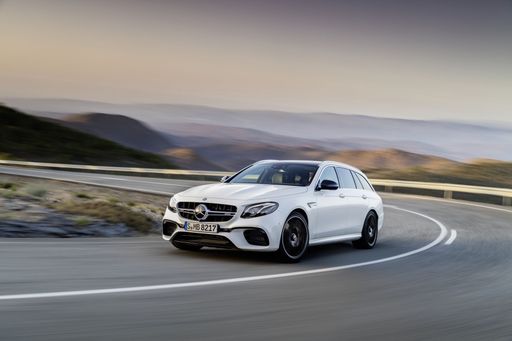
Mercedes E-Class Wagon
Mercedes E-Class Wagon
The Mercedes-Benz E-Class Wagon offers a harmonious blend of luxury and practicality, making it a favourite for those who value both style and functionality. Its sleek exterior design is matched by a sophisticated interior that provides a comfortable and spacious environment for both driver and passengers. This vehicle also boasts advanced technology features, ensuring a smooth and connected driving experience.
details @ group-media.mercedes-benz.com
@ group-media.mercedes-benz.com
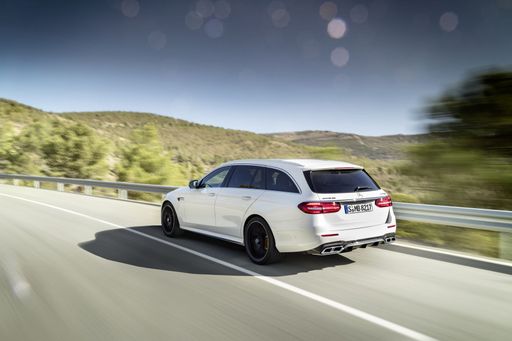 @ group-media.mercedes-benz.com
@ group-media.mercedes-benz.com
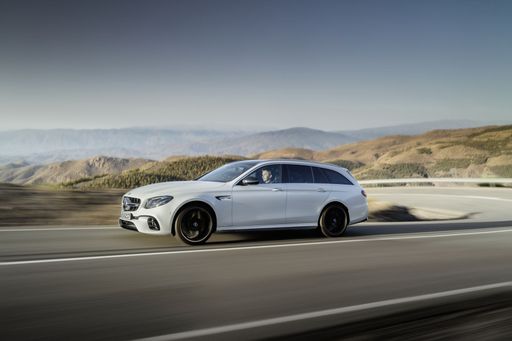 @ group-media.mercedes-benz.com
@ group-media.mercedes-benz.com
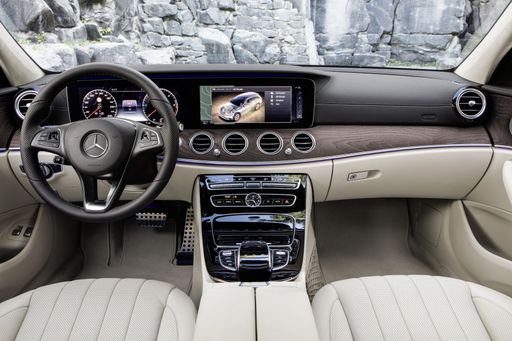 @ group-media.mercedes-benz.com
@ group-media.mercedes-benz.com
Nissan Juke
The Nissan Juke stands out with its distinctive design and bold styling, making it a popular choice for those seeking something different on the road. Its interior cleverly combines modern technology with comfort, offering an enjoyable driving experience for both the driver and passengers. Despite its compact size, the Juke provides a surprising amount of space and versatility, making it suitable for urban adventures and weekend getaways alike.
details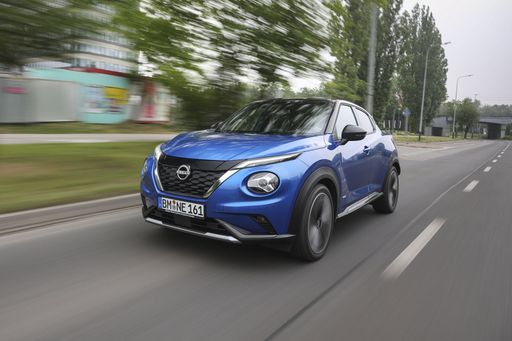 @ germany.nissannews.com
@ germany.nissannews.com
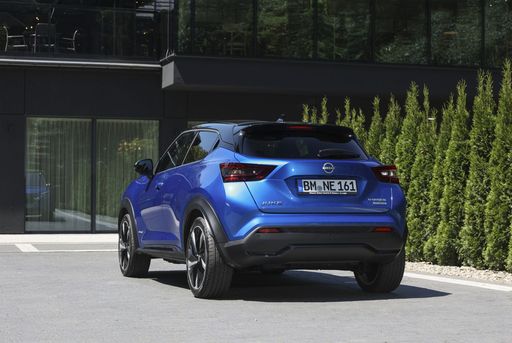 @ germany.nissannews.com
@ germany.nissannews.com
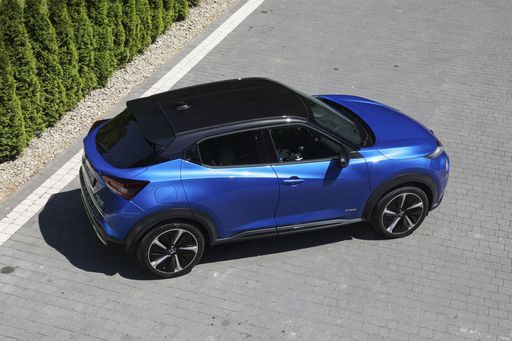 @ germany.nissannews.com
@ germany.nissannews.com
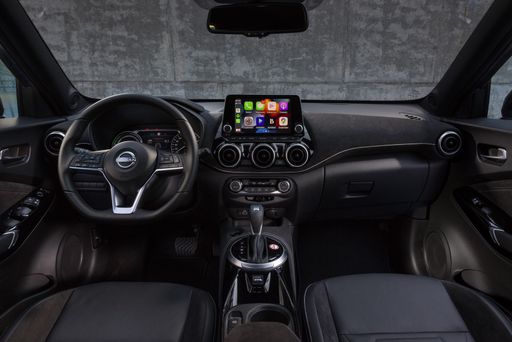 @ germany.nissannews.com
@ germany.nissannews.com

|

|
|
|
|
Costs and Consumption |
|
|---|---|
|
Price
52600 - 121800 £
|
Price
21400 - 30100 £
|
|
Consumption L/100km
1.7 - 7.9 L
|
Consumption L/100km
4.7 - 6 L
|
|
Consumption kWh/100km
-
|
Consumption kWh/100km
-
|
|
Electric Range
97 - 109 km
|
Electric Range
-
|
|
Battery Capacity
21.20 kWh
|
Battery Capacity
0.60 kWh
|
|
co2
44 - 181 g/km
|
co2
107 - 136 g/km
|
|
Fuel tank capacity
50 - 66 L
|
Fuel tank capacity
46 L
|
Dimensions and Body |
|
|---|---|
|
Body Type
Estate
|
Body Type
SUV
|
|
Seats
5
|
Seats
5
|
|
Doors
5
|
Doors
5
|
|
Curb weight
1900 - 2435 kg
|
Curb weight
1274 - 1405 kg
|
|
Trunk capacity
460 - 615 L
|
Trunk capacity
354 - 422 L
|
|
Length
4949 - 4959 mm
|
Length
4210 mm
|
|
Width
1880 mm
|
Width
1800 mm
|
|
Height
1469 - 1497 mm
|
Height
1593 mm
|
|
Max trunk capacity
1675 - 1830 L
|
Max trunk capacity
1237 - 1305 L
|
|
Payload
540 - 645 kg
|
Payload
405 - 427 kg
|
Engine and Performance |
|
|---|---|
|
Engine Type
Petrol MHEV, Plugin Hybrid, Diesel MHEV
|
Engine Type
Petrol, Full Hybrid
|
|
Transmission
Automatic
|
Transmission
Manuel, Automatic
|
|
Transmission Detail
Automatic Gearbox
|
Transmission Detail
Manual Gearbox, Dual-Clutch Automatic, Automatic Gearbox
|
|
Drive Type
All-Wheel Drive, Rear-Wheel Drive
|
Drive Type
Front-Wheel Drive
|
|
Power HP
186 - 585 HP
|
Power HP
114 - 143 HP
|
|
Acceleration 0-100km/h
4.1 - 8.8 s
|
Acceleration 0-100km/h
10.1 - 11.8 s
|
|
Max Speed
213 - 250 km/h
|
Max Speed
166 - 180 km/h
|
|
Torque
320 - 750 Nm
|
Torque
200 Nm
|
|
Number of Cylinders
4 - 6
|
Number of Cylinders
3 - 4
|
|
Power kW
137 - 430 kW
|
Power kW
84 - 105 kW
|
|
Engine capacity
1993 - 2999 cm3
|
Engine capacity
999 - 1598 cm3
|
General |
|
|---|---|
|
Model Year
2024 - 2025
|
Model Year
2024
|
|
CO2 Efficiency Class
G, E, F, B, D
|
CO2 Efficiency Class
D, E, C
|
|
Brand
Mercedes-Benz
|
Brand
Nissan
|
What drivetrain options does the Mercedes E-Class Wagon have?
The Mercedes E-Class Wagon is offered with All-Wheel Drive or Rear-Wheel Drive.
The prices and data displayed are estimates based on German list prices and may vary by country. This information is not legally binding.
